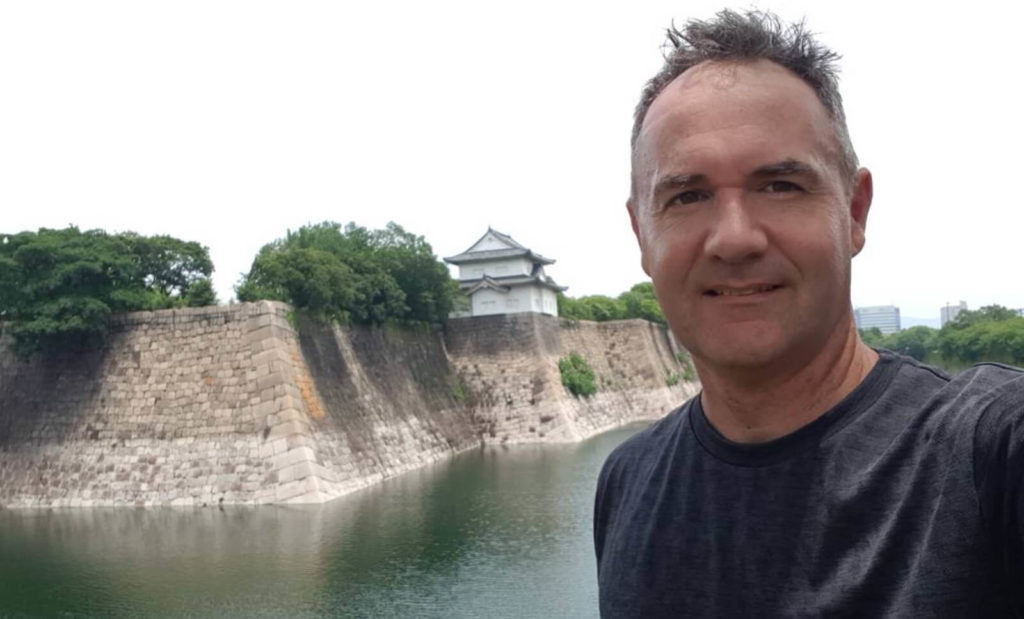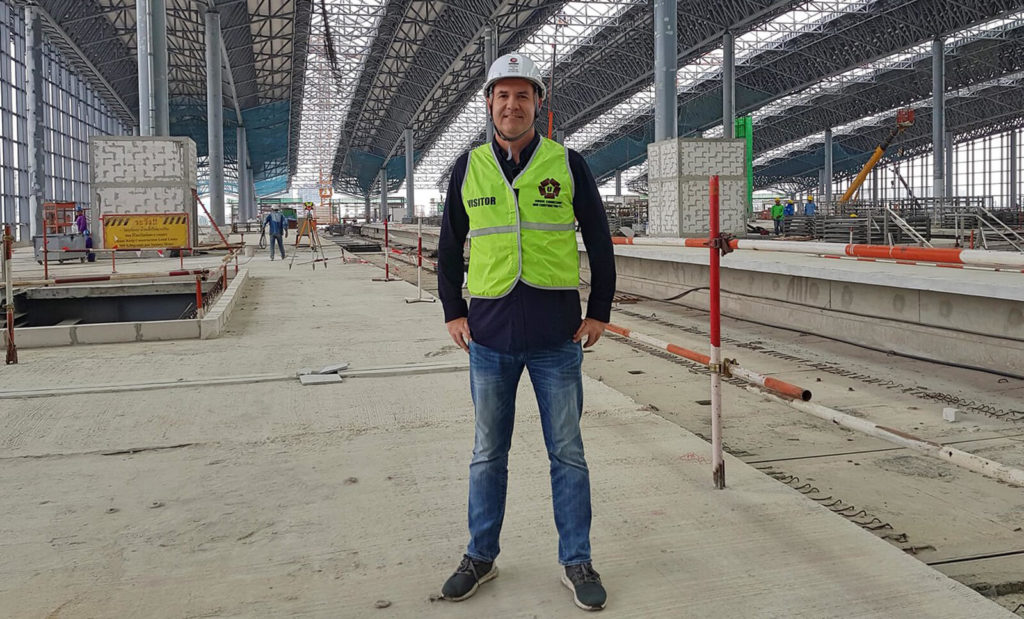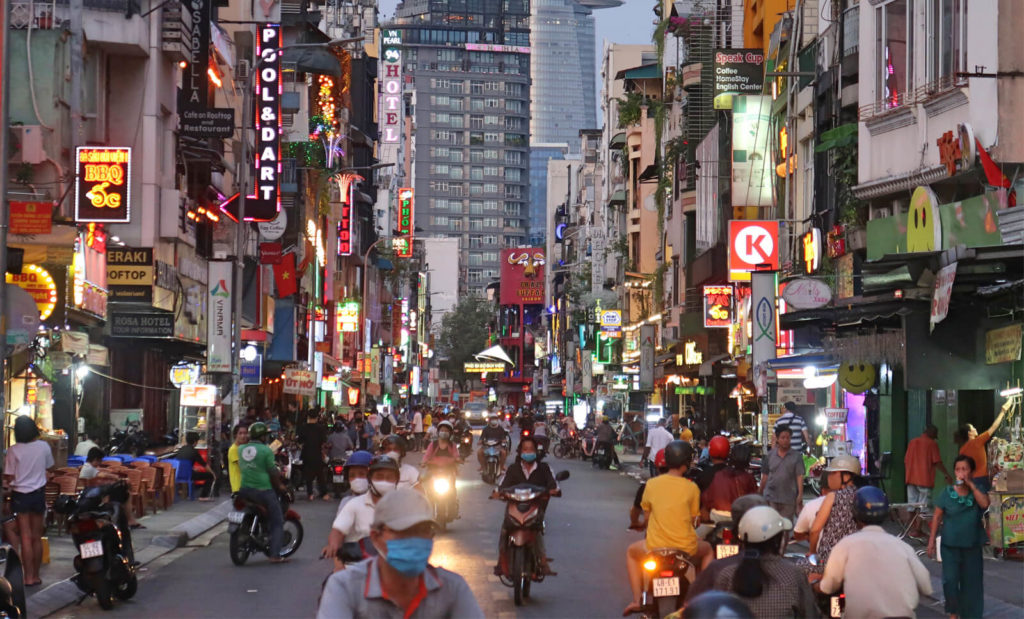Before the term “digital nomad” was coined, James Clark was traveling the world and working remotely.
The founder of Nomadic Notes spent the past 17 years exploring different parts of the world including counties spanning across Europe and Southeast Asia, all while learning new skills and maintaining his business. In our interview with Clark, we learned what it takes to travel and work remotely, what the challenges and benefits are of the lifestyle, and how to get started as a digital nomad.
Where are you from and how did you become a digital nomad?
James: I’m from Melbourne Australia, and my journey to becoming a digital nomad was a gradual process that happened without even realizing it was happening. I started out living in the UK on a working holiday visa in 1999, and from that moment I knew I wanted to work and live abroad. The only problem was that my visa was temporary and I didn’t have a skill set that could allow me to work anywhere.
In 2002, I started a second working holiday visa in Ireland, and by then I knew I wanted to do something more fulfilling than the boring temporary jobs I was working in. It was around this time that I started making websites, and by the time my visa expired in 2003 I was ready to start working remotely.
I don’t recall when I first heard the phrase digital nomad, so before then I used to just say that I would work while I travel and work wherever there was a good internet connection. After a few years of living this lifestyle, it became apparent to me that I could never go back to my old way of working.

What do you do for work?
James: Online publishing would be the most descriptive way to describe my business. I have numerous websites that range from travel guides, personal blogs, news sites, and email newsletter services. Nomadic Notes is my main travel site, which includes destination travel notes and my life as a digital nomad. I also publish a site about transport and infrastructure in Asia, and for a bit of variety, I’m the editor of a weekly gold newsletter. For most of my publishing career I have been focussed on travel, so having diversified interests has been important during this time of the downtown in global travel.

How did you land your gig being self-employed?
James: I started out by learning basic HTML in 2001 (this was before WordPress made publishing easy). I was making hobby travel sites when I discovered the world of affiliate marketing, where I could make a commission by referring readers to services I use and recommend. I was doing this in my spare time after work, and learning about search engine optimization to help my sites rank. By 2003, I was starting to make some money which was enough to make it a full-time business.
What are the challenges and benefits of being self-employed while traveling?
James: Self-discipline is a challenge being self-employed on the road. It’s tempting to go out exploring when work still needs to be done. I usually find traveling with people who aren’t self-employed challenging as well, as they are in full-time holiday mode. This is one of the reasons I prefer solo travel.
The benefits are that I get to travel to far more places than I ever would have been able to if I had a regular job.
What’s something you wish you knew before becoming a digital nomad?
James: It’s ok to change your plans at a moment’s notice if a place isn’t working out for you. As that Charbonneau quote goes, “embrace the detours”.
Where do you stay and work from while you’re traveling?
James: Where I stay varies from destination and time. If I’m only in a place for a short time then I stay in hotels or Airbnbs. If I’m staying somewhere longer then it makes more sense to look for monthly apartment rentals. This used to be a difficult process early on, as landlords didn’t see the benefit of monthly rentals. Now it’s becoming more common, and having sites like Anyplace dedicated to furnished monthly rentals certainly makes life easier.
Where is your favorite place to work remotely?
James: At the moment I’m based in Ho Chi Minh City, which has been a great place to work remotely. It’s a vibrant and fast-growing city, it has a tropical climate, low cost of living, easy access to the rest of Southeast Asia, and there are many other digital nomads here.

What are your future plans as a digital nomad?
James: My future plans mostly revolve around how I can grow my business, and I leave the nomadic aspect room for variation. When I first started out as a digital nomad in 2003, I spent six months in Switzerland, and I ended up spending my northern summers in Europe until 2009. In 2010 my travels and lifestyle switched to Southeast Asia, where I now spend most of my year. I would not have predicted either of these scenarios when I first started out, and if I had made a plan I probably would have sold myself short.
Do you have any tips for someone just getting started as a digital nomad?
James: The main thing to consider is building your business or skill set that enables you to work remotely anywhere in the world. Everything else comes after that. There is no need to buy a course on how to become a digital nomad, no matter how alluring the photo of a nomad working by the pool looks.
Where to next? Find flexible month-to-month rentals across the globe on Anyplace.





